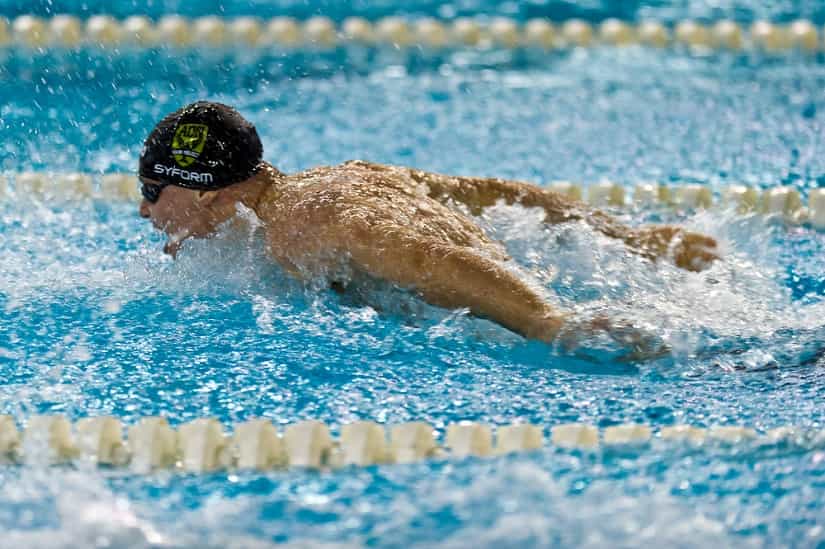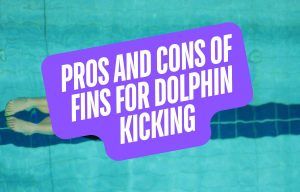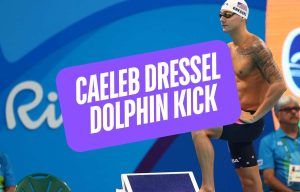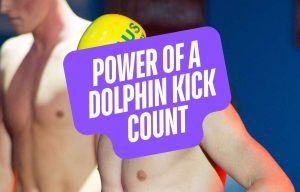I got an email from a young swimmer recently who is experiencing something a lot of us do over the course of our swimming careers: she felt like she wasn’t getting enough attention from her coach.
On top of that, she’d just moved to a new program from a small team where she was a big fish in a small pond. Now, she was feeling lost in the mix and wasn’t sure what to do about it.
Here’s a more detailed version of the answer I gave her.
It Starts With You
If you feel like your coach isn’t giving you enough attention, or you are worried that your swimming isn’t improving fast enough, or you are confused or frustrated with the process, it’s time to take full-blown ownership with your swimming.
Don’t wait for someone else to come along and fix things for you.
Especially if no one else knows how frustrated you are.
It’s your swimming.
Let’s take ownership of that bad boy and send ourselves flying butt-first into new-PB territory.
This is how we go about doing it.
Take Ownership of Your Goals in the Water
You comfy?
Good.
- Grab a piece of paper (I know—we are going old school pen and paper on this bad boy) and write out your goals in the pool. Below that nasty goal, write out what you are willing to do in training to achieve them. Don’t go crazy or overthink this step: simply jot down the commitments you have to make to crush your goals.
- Set a meeting with your coach. Schedule a time where you will both have time to chat for 5, 10, or 15 minutes without being interrupted by other swimmers or other commitments: don’t chase down your coach as they are walking to their car to go to their day job, for instance.
- Lay out what you want to accomplish in the pool, what you think is necessary to get there, and ask for your coach’s help. List out what you are going to do to accomplish your goals, and ask your coach to help you with those specific things, whether they are technical, things to do with mental training, whatever.
That’s it.
Seriously.
A few different things might happen at this point.
Your coach will tell you that you are on the right track. To keep doing what you are doing and that the results will reveal themselves with a little patience. Writing out your goals and having to say them out loud will make you realize maybe your goals weren’t as realistic as you initially thought. Or that the things you are doing in practice every day aren’t in line with what you want to achieve at the end of the season.
But there is one thing that will happen: expectations will be set.
The conversation you have with your coach will show them that yes, despite your moping and quietness at practice, you deeply care about your swimming. This talk will shape your attitude and behavior in practice. But perhaps most importantly, it gives your coach expectations to work with as well.
If he or she knows what you are willing to commit and do in practice in order to contribute to your success and the success of the team, they are going to be much more likely to invest more time and energy into your swimming.
Don’t fall for the mistaken assumption that because you are the swimmer, and they are the coach, that they automagically know exactly what you need or how badly you want to be successful. Especially when you are showing the classic symptoms of disinterest and frustration. Do you suppose that crossing your arms and moping is going to get you the positive instruction you and your goals need?
You already know the answer.
The best athlete-coach relationships are just that—a relationship with both parties contributing. Just cause you’re the kid and they are the adult doesn’t mean they can read your mind.
A lot of swimmers skip out on taking full accountability for the very simple reason that it gives them an easy way out when things don’t go their way. It’s the coaches fault. The pool’s fault. The competition’s fault. Simply moving towards a more accountable understanding with your coach will seriously boost your chances of crushing it.
Coaches love it when you take ownership.
Be proactive with your coach and the relationship you have with them.
If you don’t understand something in the process, calmly ask them to explain it to you so that you do understand. An overwhelming majority of coaches appreciate this kind of curiosity—as long as it’s phrased politely and calmly, and not “What the hell is the point of this set?”
Sharing your goals with them might not fix everything overnight. But it will clarify your own goals in the pool, and it can be the start to a more productive relationship with your coach.
This kind of personal accountability will also radiate outwards: you will be a better teammate, you will be the kind of athlete that helps with the equipment, and of course, your own swimming will improve leaps and bounds.
Stay Consistent with Your Commitment
What more can you do to foster a better relationship with your coach? And your teammates…and improve your swimming faster along the way?
It’s one thing to say that you are committed to your goals and the team, but it’s another to do so with your actions:
- Show up on time to practice. Respect the time of your teammates and your coach by showing up to workouts on time. Be ready to rock and roll, and not the swimmer who is always looking for a reason to get into the water last.
- Work on your bad body language. Complaining doesn’t just come in the form of grumbles and outright whining—it’s easily seen in the poor body language we use when we are grumpy-pants about something.
- Work hard when you don’t feel like it, too. There’s nothing particularly noteworthy about someone who wants to train their butt off when they are fully motivated to do so. That’s easy. Being the swimmer that works hard when the set is hard, when your stroke feels off, and it’s already been a grueling workout shows grit and resilience.
- Listen. Getting frustrated with sets and workouts is perfectly natural when we don’t understand the rationale behind it. Step one in having the “why” is listening when workouts and sets are being listed. Don’t be the swimmer that absent-mindedly nods and mutters “Sure thang” when coach is talking about the practice.
- Keep your cool. I know this can be tough when you feel like your coach is picking on you, or not paying any attention to you. But staying calm and collected is critical if you want to get your point across. Don’t let the message get lost in a flurry of emotions. Sleep on it if you have to, but keep it level and cool and you increase the likelihood of gaining the outcome you want.
More Stuff Like This:
This New Mental Training Workbook Will Help You Swim Like a Rock Star This Season. Confused about mental training? Want to unleash pro mode on your swimming this year? Learn how this new mental training workbook will change your mindset and help you pummel your PB’s this season.
Why Change is So Hard in the Pool (and How to Make It Easier). We all want change in some measure—so why is it so dang difficult to make happen? Here’s the reality behind making change that actually sticks in the pool.
17 Things That Mental Training Will Do for Your Swimming. Not entirely sure what mental training can do for you? Here’s just a sampling of the superpowers it gives you in the water.














